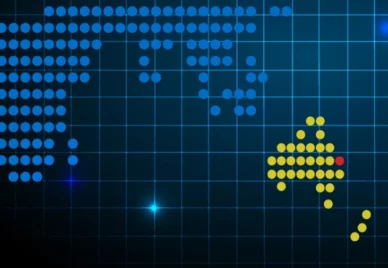
2024 eResearch Australasia Conference
Go to partner eventabout 2024 eResearch Australasia Conference
Last year, the ARDC released its draft Research Software Agenda for Australia, with a call to see, shape and sustain research software in order to be recognised as a first-class scholarly output, alongside journal papers and, increasingly, research data.
Ensuring software is visible, shared and available is vital to research integrity. Most research would not be possible without software, and yet it is frequently unacknowledged, and unpublished. To make the most of research software, it needs to be published, citable and FAIR (findable, accessible, interoperable and reusable). In other words, we need to be able to see research software.
We identified the need for the Visible Research Software Interest Group while consulting with the research community for the Research Software Agenda for Australia. The research software community expressed a desire to share information and resources to support making research software more visible.
The keen desire to discuss research software was also evident at the eResearch Australasia Conference in October 2021. The community presented a Birds of a Feather (BOF) session Data is Only Half the Battle, which attracted more than 60 participants. Interestingly, during the preparation for the session, the presenters identified 40+ resources to support the community. After the session, we received positive feedback and new collaborators helped write the session report.
In Australia, the draft National Research Infrastructure Roadmap 2021 (released November 2021) highlights: “Research software plays an essential but often invisible and undervalued role in generating, processing and analysing data.” This new community has an opportunity to help inform a coordinated national response to this challenge by discussing the visibility of research software.
We are excited to announce the launch of the Visible Research Software Interest Group. The group will discuss making research software citable, published and FAIR.
The interest group is for those who are interested in making research software more visible, especially those who support researchers that create research software. Group members could be from a university, government agency, research institute or facility, or industry. The group is free to join, and there will be a variety of ways to participate that will accommodate busy schedules.
The interest group is co-led by ARDC and partner institutions:
Paula said, “We have been incubating this interest group to stimulate community participation to share existing guidance and embrace new ideas on policy, incentives, partnerships, and more. We are excited to get the community together to discuss research software visibility.”
Johan said, “I am looking forward to co-hosting this interest group to help share global initiatives with researchers, and support them to make their own software more visible.”
The first meeting of the Visible Research Software Interest Group will be held on 29 March 2022. Attend the meeting to help shape the community by discussing our Terms or Reference and your expectations.
Join the Visible Research Software Interest Group now, and receive an invitation to the first meeting on 29 March 2022.
The ARDC is funded through the National Collaborative Research Infrastructure Strategy (NCRIS) to support national digital research infrastructure for Australian researchers.